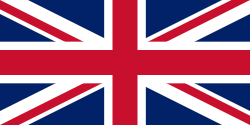This article needs to be updated. The reason given is: The article is missing information about the 2020 Olympics.(September 2021) |
 | |||
| Union | British Olympic Association | ||
|---|---|---|---|
| Coach | Giselle Mather [1] | ||
| Captain | Abbie Brown | ||
| |||
| First international | |||
(6 August 2016; Rio de Janeiro, Brazil) | |||
| Largest win | |||
(26 September 2021; Edmonton, Canada) | |||
| Largest defeat | |||
(8 August 2016, Rio de Janeiro, Brazil) (27 November 2021, Dubai, UAE) [2] (4 December 2021, Dubai, UAE) [3] | |||
| Medal record | ||
|---|---|---|
| European Games | ||
| 2023 Kraków–Małopolska | Team | |
The Great Britain women's national rugby sevens team is the women's international rugby 7s team that is the representative team of Great Britain. The team played their first competitive match at the 2016 Summer Olympics after England finished in an Olympic qualifying place at the World Rugby Women's Sevens Series.
Contents
- History
- Eligibility
- Tournament record
- World Rugby Sevens Series
- Summer Olympics
- Squad
- Sevens Series squad
- Notes
- References
They qualified for the 2020 Summer Olympics through England winning the 2019 Rugby Europe Women's Sevens Olympic Qualifying Tournament in Kazan. Great Britain finished in fourth place after losing in the bronze medal match to Fiji. [4] They participated at the 2021 Canada Women's Sevens and won the tournament back to back in Vancouver and Edmonton. [5]
